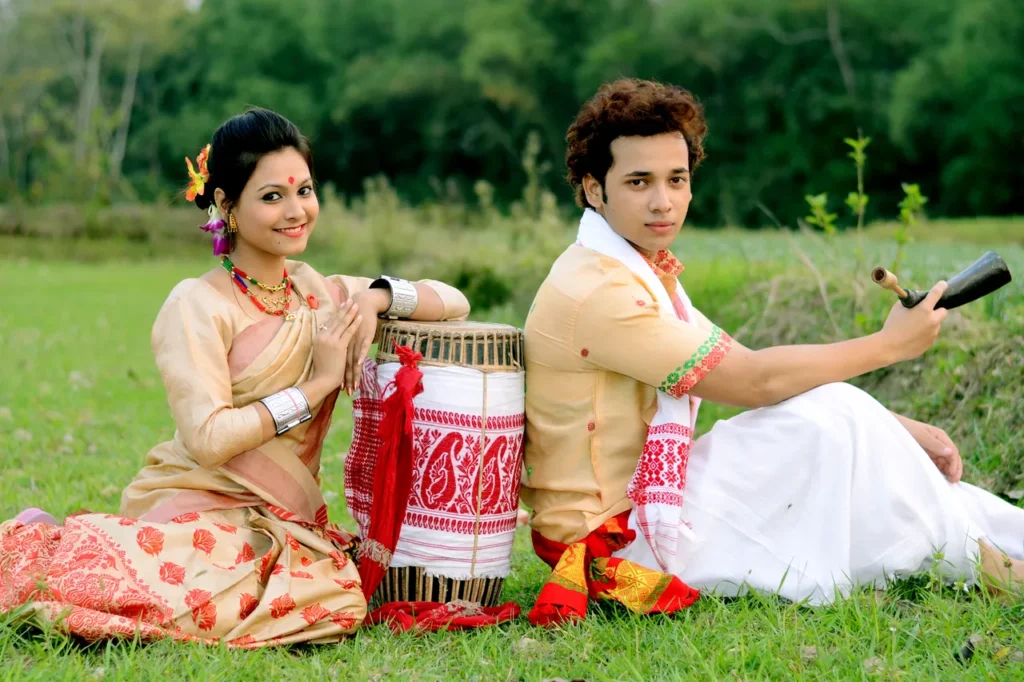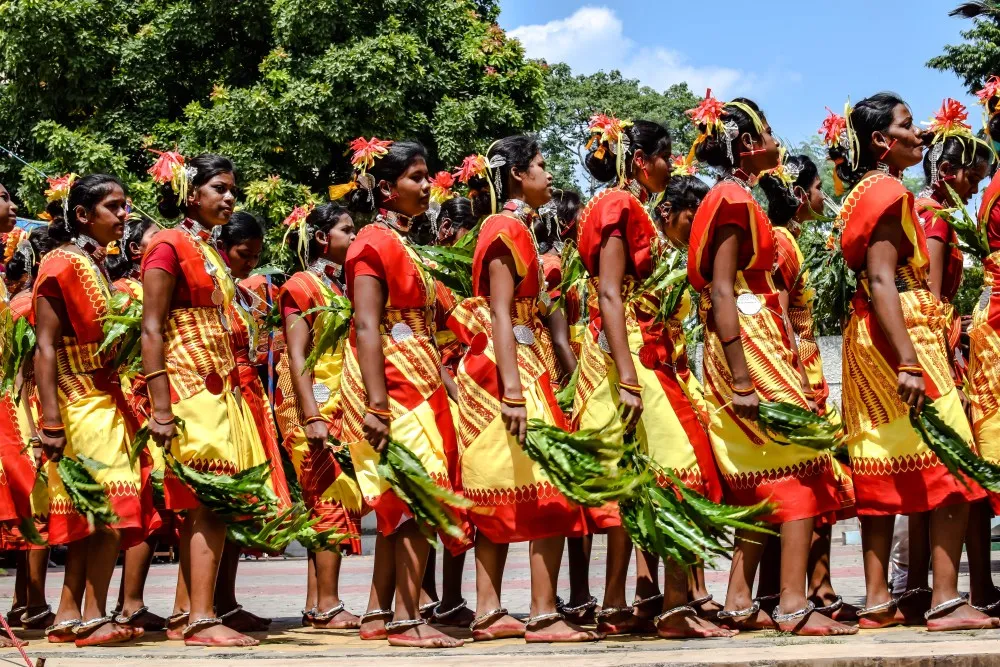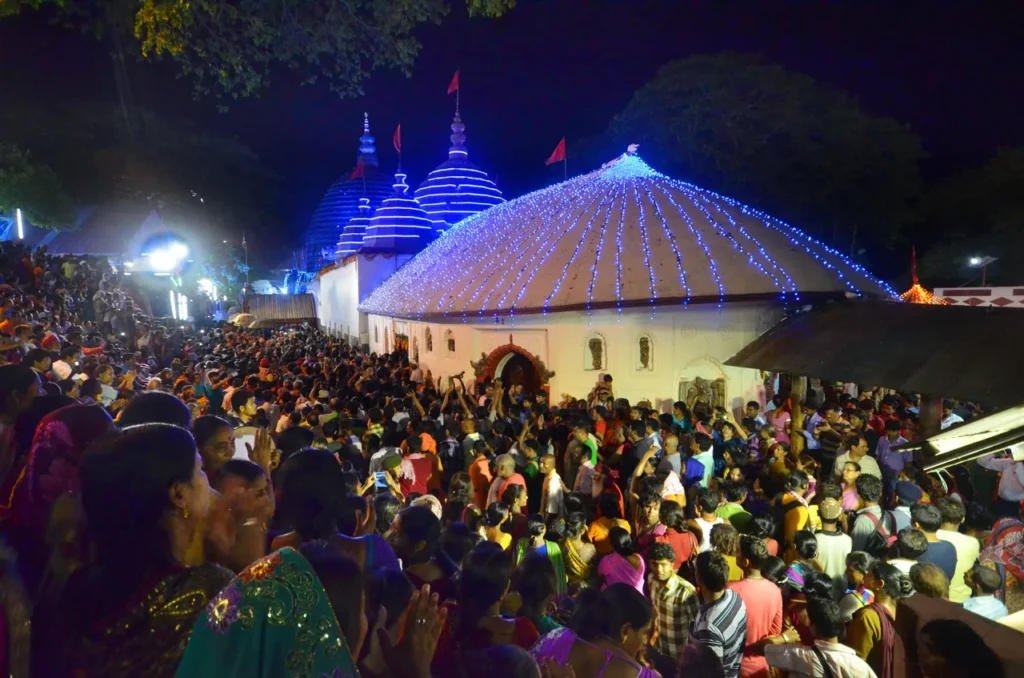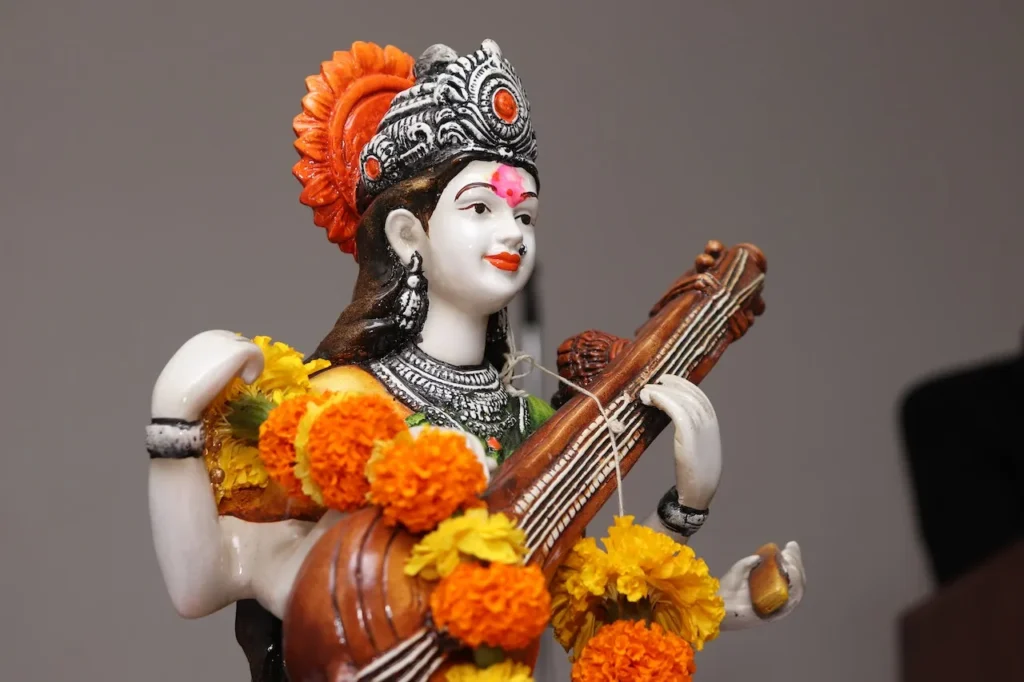Assam the northeast Indian State is majorly known for its vibrancy. The rich culture and colourful Assam festivals are one of the things that make this state lovable. Moreover the festivals in Assam are colourful and quite entertaining and fun. You will get to see festivals and celebrations surrounding religion, culture and good harvest. The true spirit of a state can be observed by observing the festivals that they celebrate. Cultural beliefs, religious rituals and the fun aspects of the festivals of Assam would be interesting to read about.
In this article I have mentioned the important festivals of Assam that the people celebrate with all their heart. Being a place that houses diverse cultures, they enjoy their festivals with an aim of restoring and promoting unity and brotherhood. Read about the famous festivals of Assam and enrich yourself about this vibrant state and its culture.
15 Festivals of Assam
Bihu festival

The main festival of Assam is the Bihu Festival. Irrespective of the caste, creed, beliefs and faiths, this festival is celebrated by the majority of Assamese. Each year there are three specific times and occasions for celebrating Bihu. These are Bohag Bihu, Kongal Bihu and Magh Bihu.
Bohag Bihu
This festival is celebrated during mid-April in the Baishakh month. Bohag means Baishakh in the local language. Also known as Rongali Bihu, this festival is the Assamese New Year Festival. The first day of Bohag Bihu known as Goru Bihu is the day when cows, bulls and oxen are given a bath with turmeric. They are fed vegetables and their ropes are also changed. On the second day of the festival is the first day of the Assamese New Year known as Manuh Bihu. On that day, everyone wears new attire and makes traditional delicacies at home. They also exchange gifts and visit each other on this day.
Read More: TEMPLES OF ASSAM | ASSAM FAMOUS TEMPLES
Kongal Bihu
Kongal Bihu also Known as Kati Bihu is celebrated in mid October in the month of Kartik. After the completion of the sowing of seeds, this festival is celebrated. This is a subtle festival where the celebratory mode is not too high. The main part of this festival is an earthen lamp that is placed near the auspicious Tulsi Plant. Furthermore, all the members of the family pray for a good harvest. However, the farmers celebrate the festival in a different way. They light sky lamps and then place them on bamboo poles in the paddy fields. This also ensures that the crops are safe from insects and pests.
Magh Bihu
The Magh Bihu festival is celebrated in the Hindu month of Magh that is the time of mid January. Also known as Bhogali Bihu, this festival revolves around food. This festival marks the completion of the harvesting season. On the evening of Magh Bihu the Assamese people have their food around a bonfire or Meji. In the morning they take a bath and lights the Meiji built with bamboo and wood. Everyone gathers around that and offers prayer. This is followed by having a traditional Assamese breakfast consisting of Chira or flattened rice, puffed rice or akhoi, bora saul and kumol saul. This is savored with curd, jaggery and fresh cream.
Karam Puja

The Karam Puja is celebrated by the tea growing tribes of Assam. This is a major agricultural festival in Assam. The festival is celebrated on the 11th day or Bhado Ekadoshi of Bhado month, on a full moon day. In this festival the Karam Tree represents the Karam God or the God of Youth. Everyone prays to the Karam God to keep them safe. They believe that the blessings from the Karam God will protect them and their crops from evil eyes. Therefore there will be better crop yields. An important ritual during this puja is, three selected unmarried girls fast for three days. This is known as Karam Nachis. Afterwards, when these girls break their fast, the rituals begin.
Later, all the people head towards the forest area while dancing and singing. Along with that drums are played that accompany the folk songs. Famous dance form Jhumur Dance is also performed. After all these, a single branch of the Karam Tree is brought from its place and planted in the courtyard and is covered with cow dung and mud. Everyone dance around it the whole day. This follows with a grand feast as well.
Ambubachi Festival

This is a major religious festival in Assam that is celebrated in the Kamakhya Devi Temple of Assam. The festival happens in the month of June. Devi Kamakhya is worshipped during this festival. It is a 4 day long festival. According to ancient myths and popular traditions, it is believed that for the first three days the Goddess goes through a menstrual cycle. On the 4th day there is a proper consecration ceremony that takes place after following all the rituals and customs. Assamese tradition and culture can be observed in a more glorious way during the time of this festival. If you ever plan to visit Assam, do consider visiting around this time to get a clear insight on the Assamese faiths and beliefs. Also you can explore the Ambubachi Mela that happens at this time.
Dehing Patkai Festival
This festival is organized by the Government of Assam that takes place at Lekhapani in Tinsukia district of Assam. The festival happens during the month of January. This is like a grand celebration time that showcases the diversity of Assamese culture. There are activities like Parasailing, Kayaking that people can enjoy. You can also indulge in shopping for different handicrafts items in the traditional fairs. Furthermore, you can plan a tour to the tea plantation and understand a lot more about the Assamese Tea culture. Along with that, you can enjoy the elephant safari as well. A must mention is the delicious food that is offered during the festivals. This is like a colourful festival that involves a lot of fun.
Read More: FESTIVALS OF KERALA | KERALA FESTIVALS NAME
Baishagu Festival
The Boro Kacharis tribe in Assam celebrates the Baishagu festival. This festival happens around mid April at the advent of the Assamese New Year. During this festival the cows are bathed and offered prayers as they are considered holy. On the next day, which is the second day of the festival, the younger members of the family seek blessings from the older ones. Another highlight of this festival is the Bagurumba Dance which is performed during this festival. People of all ages and gender take part in this dance performance. Musical instruments like Kham, Khawbang, Gogona, Siphung, Tharka and Jotha are played along with traditional folk songs. At the end of the day, all the people gather at a particular spot to offer a community prayer. Later the festival is followed by a grand feast as well.
Tea Festival
It is not a new thing that Assam tea is world famous because of its flavors and goodness. This is one festival in Assam that honours the role and significance of Tea in this state. The Assam Tea Festival is organized by the Tourism Department of Assam. This festival takes place between November to January in the Jorhat district of Assam. People travel from all over the world to be a part of this extravagant Assam festival. This festival is also designed in a way to promote the hospitality and warmth of Assam to the tourists.
Therefore, many activities are organized for the visitors here like jungle safaris, a tour into the sprawling tea garden, angling, rafting, golfing, trying Assamese cuisine and many more. You can also enjoy the essence of local folk songs and dance performances during the various cultural events organized here. In a way, the purpose of this festival is to highlight all the key elements of this State. It’s like letting everyone know why you must visit this beautiful north eastern state of Assam.
Majuli Festival
Majuli festival is another colourful festival of Assam that just highlights the culture of Assam in a beautiful way. If anyone wants to observe the cultural diversity in Assam then this is the perfect time. This festival is all about celebrating Assam’s essence. With colourful Assamese traditional wears, delicious Assamese cuisine, local talents and their showcasing of traditional folk songs and dance makes this festival one of the richest festivals in Assam. There are exhibitions during this time where you can enjoy the local food, buy local handicrafts, and also observe the talents of people showcasing them.
What is most beautiful about this festival is that, both local and international citizens showcase their talent under one roof. One must attend this festival if they really want to explore the beauty of Assamese culture. This is also a way to support the local talents and promote the handicrafts goods that they make. Everyone attending this festival must buy some token gifts for themselves or their close ones from here in order to lend some support to the local artists.
Saraswati Puja

This is one of the famous auspicious festivals in Assam. On the day of Vasant Panchami this puja takes place. Goddess Saraswati is worshipped on this day as the Goddess of Knowledge and Wisdom. Assam is a cultural state that gives a lot of importance to education and knowledge. That is the reason why Saraswati Puja is an important festival in the state of Assam. Devi Saraswati is also Goddess of Art, Music and Education. The festival is mainly celebrated by the students and they pray to the Goddess for their prosperity of knowledge. This is one of the festivals in Assam that is celebrated by people of all communities. Assam being a state that honours its cultural aspects like singing and dancing, this festival is very important. The festival is celebrated with a lot of enthusiasm by people of all ages.
Rongker
The Rongker festival in Assam is one of the traditional festivals. This festival takes place in the month of April by the Karbi Tribe. The Rongker festival also coincides with the Rongali Bihu festival. This festival is mainly about worshipping the local deities to save the people from evil eyes. It is also believed by the local people that this festival keeps the residents free from diseases and natural calamities.
The festival is celebrated for 3 days. All the residents pay for the expenses for this festival as the rituals are done for the safety of all the people. There are a total of 4 types of rituals for this festival. The priests perform the main rituals here. After the deities are worshipped, they are offered meals. Later all the villagers indulge in a grand feast. Another important aspect of this festival is the Rongphu-rongling-kangthin. It is believed that by this process the evil spirits leave the village and the people dance the spirits away. All the rituals of this festival are performed by men. Women are not involved in any activity. Also activities like husking and other agricultural activities are forbidden during the time of the festival.
Ras lila
The Majuli people are worshippers of Lord Sri Krishna. Through various plays the Majuli people celebrates the Ras Lila. These spiritual plays depict the life of Lord Krishna. The celebration revolves around song and dance along with spiritual significance. It’s a 5 day long celebration where you will be able to notice the significance of the culture and traditions of Assam and its people.
Me Dam Me Phi
On 31st January every year the entire Ahom community celebrates this festival. The main aim of this festival is to get together with everyone in the community and to develop social contacts. Everyone dresses up in their traditional outfits. The word “Me” means Worship, “Dam” means Dead, and “Phi” means God. The Ahom community doesn’t believe in rebirth. They believe the cycle of life ends with death. During this festival everyone prays for their ancestors so that they can become Phi or God. The districts of Dibrugarh, Lakhimpur and Sivasagar celebrate this festival.
Furthermore, it is also believed by the locals that the Gods can get angry if the festival is not celebrated in the pure traditional manner. If that happens then there will be trouble over the entire state like natural calamities and wars that can harm the people. Therefore, the festival is celebrated with great care and caution.
Baikho
This is another famous festival of Assam that is celebrated by the Tibeto-German community known as Rabhas. This community resides in Lower Assam. The Baikho festival in Assam is celebrated during the harvesting season. Tribal people in Assam worship the gods according to the ancient traditions for their good health and abundant harvest. Rain gods are worshipped for ample amounts of rainfall. Like any other festival in Assam, this festival is also celebrated through singing and dancing. Many rituals are followed to drive away the evil spirit.
Furthermore, the community dresses up in traditional outfits with drums beating in the background. After sunset, bamboo bundles are lit and prayers are offered. Later, the priest walks over the hot burning coal and the woman washes his feet. After that rice flour is smeared across their faces. Many other games, singing and dancing along with a grand feast is followed later.
Other than the vast tea plantations and the beautiful landscape, the festivals in Assam are something that the state is known for. The people in Assam celebrate these festivals with a lot of energy and pomp. They make sure the level of enjoyment and fun is there along with the customs, rituals and beliefs. If you want to explore the true essence of Assam do visit the place during these festivals. You will enjoy being a part of this for sure. Do let me know if you had any idea of these festivals of Assam or if you have ever participated in any of these.


